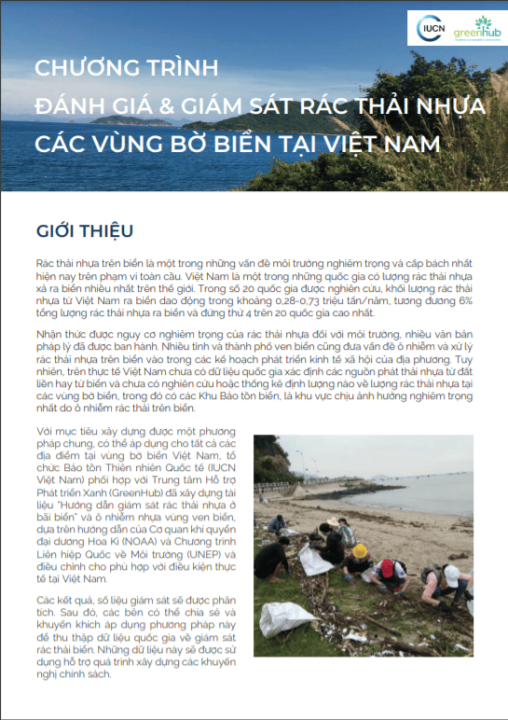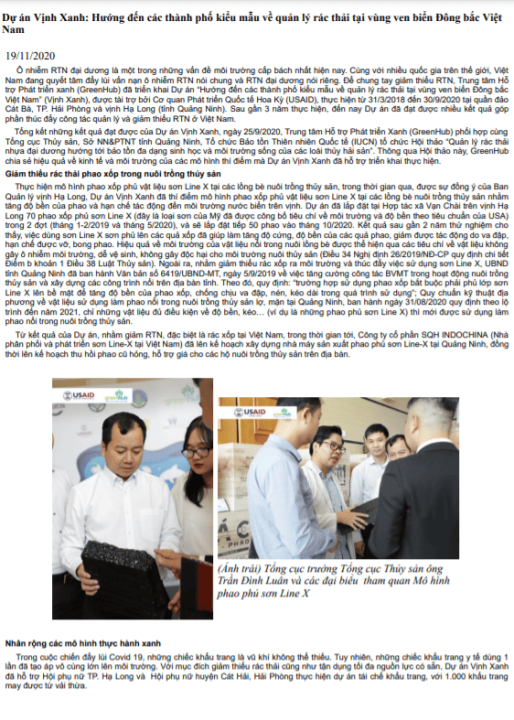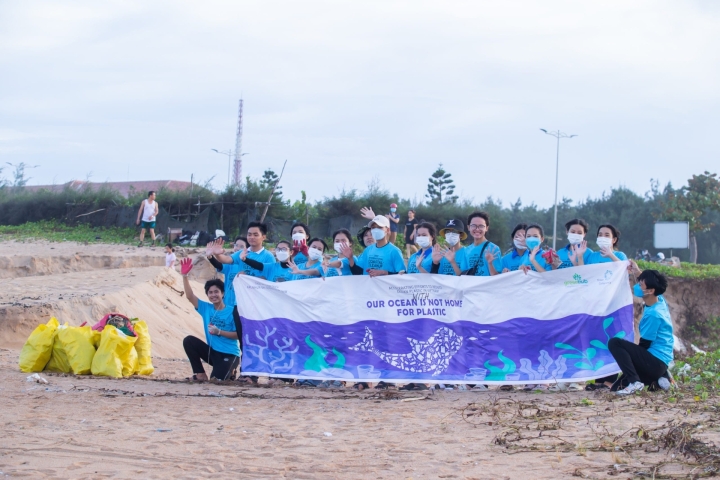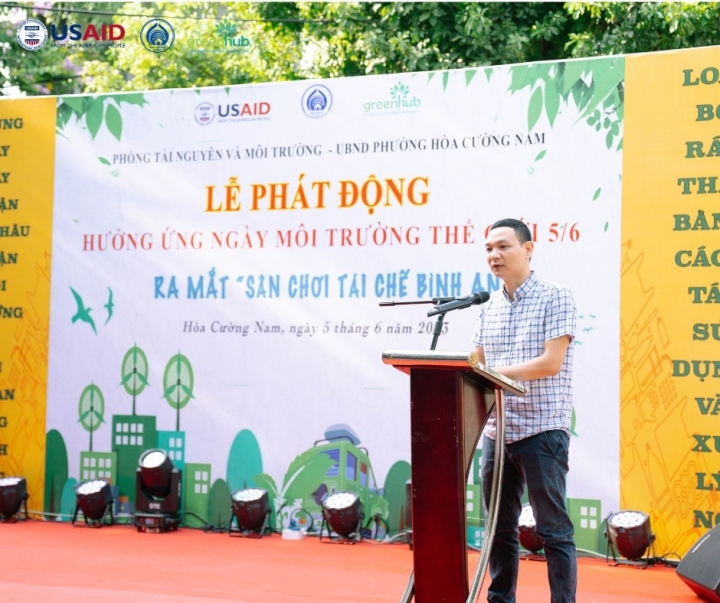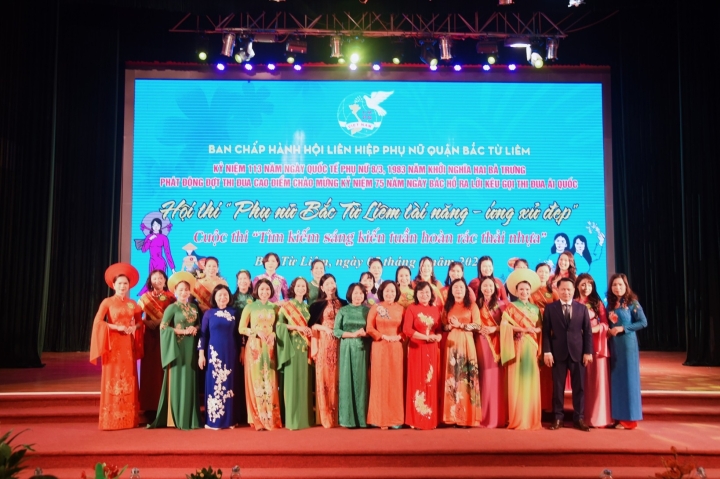The first session of the Local Model Sharing and Learning Program on Plastic Waste Reduction, applying the Collective Impact Approach in Vietnam, took place yesterday afternoon (September 21) with the participation of delegates from three locations: Hoi An, Da Nang, and Hanoi.
The program included visits to two models that have been implemented in Da Nang:
-
The initiative "Mobilizing the Green Living Club to Participate in Community Waste Management in the Context of COVID-19" (2021-2022).
-
The plastic reduction model at Han Market.
With the Green Living Club initiative, the delegation had a warm discussion at the home of the chairwoman of An Khe ward, Da Nang. Here, activities and waste collection campaigns were actively discussed, with representatives from the Women’s Unions of the three project locations sharing ideas and feedback with one another. The discussion covered various aspects, including waste collection methods and the scale of the Women's Unions' participation, with enthusiastic contributions from all participants.
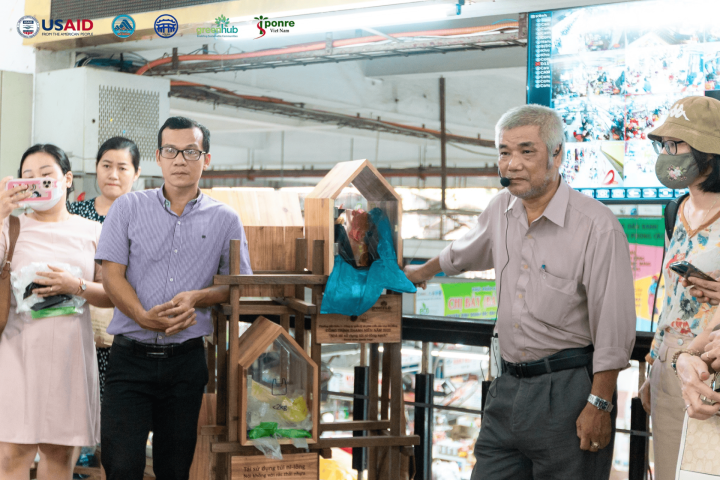
The delegation also visited Han Market, where five special waste collection models—called Plastic Bag Collection Houses—were set up. Shoppers could drop off used plastic bags, helping to reduce plastic waste in the environment. The visit also included 18 stalls that agreed to participate in an eco-labeling program and green transformation initiative. Foam trays were replaced with bamboo baskets, and plastic bags were replaced with mica containers, surprising and delighting all attendees.
"Seeing is believing!" We hope that this first field visit to the Da Nang models will be the starting point for many more exciting activities in the program. Stay tuned for more updates!
This activity is part of the project "Reducing Plastic Waste Pollution with Local Solutions" (LSPP), funded by USAID under the "Vietnam Local Activities for Environmental Health Project", implemented by GreenHub in collaboration with three partners (ISPONRE, HUPH-VOHUN, and GIMASYS).

